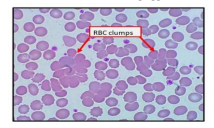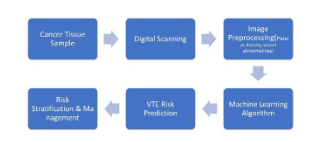Utilization of Savi Scout Radar versus Wire-Guided Localization in Neoplastic Breast Lesions: A Retrospective Review Comparing Margin Status and Re-Excision Rates.
Dr. Rohin Mehta
Introduction:
Traditionally, neoplastic breast lesions have been localized pre-operatively for surgical excision using Wire-Guided Localization, in which lesions are tagged with a small metal wire extending to the breast surface for physical guidance during later excision. In more recent years, institutions have begun implementing the relatively
new Savi Scout Radar – a method utilizing a wire-free reflector which is planted at the site of the lesion. An
electromagnetic radar “wand” is then used to home in on the reflector’s position intraoperatively. In our study, we share our institutional experience regarding localization modalities of breast lesion removal, comparing Savi Scout Radar against Wire-Localization, to assess the impact on positive surgical margin status. In addition to clinical outcomes we have also focused on comparing the two systems more broadly, which can help clinicians navigate better when choosing the system most suitable for their practice.
Key Findings:
• While Savi Scout Radar has multiple advantages over wire-guided localization in terms of pre-op care and scheduling radiology and surgical services, the clinical outcome did not show significant difference in margin
status and re-excision rates
• Savi Scout Radar may be a great options for some clinical setting, but multiple variables have to be taken into account in order to determine the feasibility of this procedure.
Biography:
Dr. Rohin Mehta has graduated from SABA University School of Medicine in 2005. He has completed hisresidency in Anatomical Pathology a t St. Barnabas medical center followed by a fellowship program in surgical pathology at the Medical College of Georgia. Dr. Mehta has also complete GI fellowship at Beth Israel Medical Center in New York City and cytopathology fellowship at SUNY Upstate Medical University where he remained to practice as a medical director and a chief of surgical pathology. Dr. Mehta is also an associate professor at Upstate Medical University and an assistant director of residency program where he gets to train the next generation of pathologist.

#UCJournals #MedicalJournals #ResearchPublication #AcademicResearch #PeerReviewed #JournalSubmission #ScientificResearch #OpenAccessJournal #ClinicalResearch #MedicalStudy #BreastCancer #BreastSurgery #SaviScout #WireGuidedLocalization #NeoplasticLesions #OncoplasticSurgery #BreastOncology #SurgicalOncology #BreastHealth #CancerTreatment #TumorLocalization #BreastCancerAwareness #OncologyResearch #SurgicalInnovation #MinimallyInvasiveSurgery #BreastConservation #Lumpectomy #MarginStatus #ReExcision #CancerSurgery #BreastImaging #Radiology #BreastTumor #CancerManagement #PatientCare #SurgicalTechniques #CancerResearch #MedicalInnovation #SurgicalPlanning #RadiationOncology #HealthcareResearch #PrecisionSurgery #BreastLesions #TumorExcision #BreastConservationSurgery #SurgicalOutcome #PatientSafety #SurgicalPrecision #CancerDetection #OncologyCare #BreastCancerTreatment #CancerPrevention #RadiologicGuidance #BreastTumorLocalization #SaviScoutVsWire



